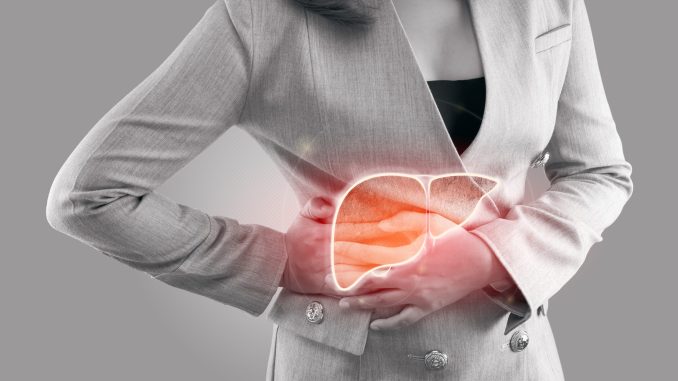
Your liver is one of the most vital organs in your body, responsible for various crucial functions, including detoxification, metabolism, and the production of essential proteins. However, modern lifestyles and dietary habits have led to a concerning rise in fatty liver disease. Fatty liver occurs when excess fat accumulates in the liver cells, impairing its ability to function properly. In this article, we will explore the warning signs of a fatty liver and ways to cleanse it for better liver health.
Warning Signs of a Fatty Liver
1. Fatigue and Weakness:
One of the early signs of a fatty liver is persistent fatigue and weakness. When your liver is overloaded with fat, it struggles to perform its functions efficiently, leading to a decrease in energy levels.
2. Abdominal Discomfort:
Individuals with fatty liver disease may experience discomfort or pain in the upper right abdomen. This discomfort is often described as a dull ache or a feeling of fullness.
3. Unexplained Weight Gain:
If you’ve been gaining weight without any significant changes in your diet or exercise routine, it could be due to a fatty liver. An impaired liver may lead to difficulties in processing fats and sugars, resulting in weight gain.
4. Jaundice:
Jaundice is a condition where the skin and eyes turn yellow due to an accumulation of bilirubin in the bloodstream. While not as common in non-alcoholic fatty liver disease (NAFLD), it can still occur in advanced stages.
5. Dark Urine and Pale Stools:
Changes in urine and stool color can be indicative of liver problems. Dark urine and pale, clay-colored stools may suggest issues with bile production and excretion, a function performed by the liver.
6. Increased Abdominal Girth:
As fat accumulates in the liver, it can lead to abdominal swelling or an enlarged abdomen, which is often referred to as “ascites.” This is a more advanced symptom of fatty liver disease.
7. Loss of Appetite:
A decreased appetite or aversion to fatty foods is a common sign of a fatty liver. This can result from the liver’s reduced ability to process and metabolize fats.
8. Skin Issues:
Skin problems like itching, redness, or spider veins may develop in individuals with a fatty liver. These symptoms can occur due to the liver’s inability to filter toxins effectively.
How to Cleanse a Fatty Liver
1. Dietary Changes:
The first step in cleansing a fatty liver is to adopt a healthy diet. Reduce your intake of saturated fats, refined sugars, and processed foods. Focus on consuming whole grains, lean proteins, fruits, vegetables, and foods rich in antioxidants and fiber. Incorporate foods like broccoli, spinach, and garlic, which support liver health.
2. Weight Management:
If you are overweight or obese, losing excess weight is essential in managing and potentially reversing fatty liver disease. Even a modest weight loss of 5-10% of your body weight can have a significant impact on liver health.
3. Regular Exercise:
Engaging in regular physical activity helps improve insulin sensitivity and reduce fat accumulation in the liver. Aim for at least 30 minutes of moderate-intensity exercise most days of the week.
4. Avoid Alcohol:
Alcohol can exacerbate liver damage, so it’s crucial to abstain from alcohol if you have a fatty liver. Even moderate alcohol consumption can harm the liver further.
5. Stay Hydrated:
Drinking plenty of water supports overall health and helps the liver flush out toxins from the body.
6. Herbal Supplements:
Some herbal supplements, such as milk thistle and dandelion root, are believed to have liver-cleansing properties. Consult with a healthcare professional before adding any supplements to your regimen.
7. Medications:
In some cases, doctors may prescribe medications to help manage fatty liver disease, especially in more advanced stages or if lifestyle changes alone are not effective.
Conclusion
A fatty liver is a warning sign that your liver is struggling to function optimally. Ignoring these signs can lead to more severe liver conditions, such as cirrhosis or liver failure. By making lifestyle changes, including adopting a healthy diet, exercising regularly, and maintaining a healthy weight, you can improve your liver health and potentially reverse the effects of fatty liver disease. If you suspect you have a fatty liver or experience any of the warning signs mentioned, consult with a healthcare professional for proper diagnosis and guidance on managing your liver health.
Share this:
- Click to share on Facebook (Opens in new window)
- Click to share on Twitter (Opens in new window)
- Click to share on WhatsApp (Opens in new window)
- Click to share on Reddit (Opens in new window)
- Click to share on Telegram (Opens in new window)
- Click to share on Pinterest (Opens in new window)
- Click to share on LinkedIn (Opens in new window)